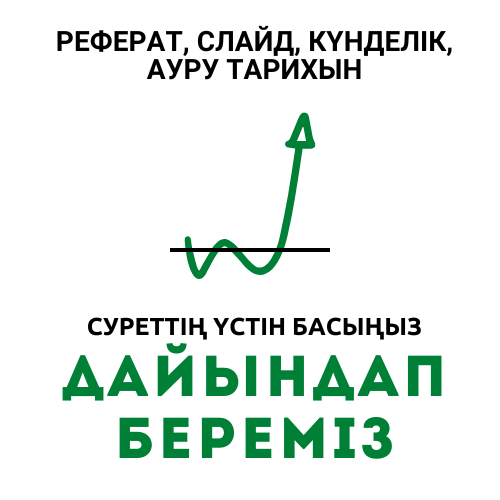The philosophy of consciousness – a philosophical discipline which studies is the nature of consciousness and the relationship of consciousness and physical reality (the body).
In the XIX century Arthur Schopenhauer called the consciousness of “snag the Universe”, alluding to the fact that the mystery of consciousness is the darkest place in the whole body (assembly) of human knowledge. In XX century the philosophy of mind has become one of the most popular areas of research, each year on this subject goes a huge amount of literature. Contemporary American philosopher Richard Rorty even said that in his opinion, philosophy of mind today is the only really useful philosophical discipline.
The problems of the philosophy of mind goes back to antiquity. Plato and Aristotle are the precursors of the modern dualists, because they believed that the mind exists as a separate matter from the ontological reality. At the root of the tradition of monism is another Greek philosopher Parmenides, who claimed that being and thinking are one. Consciousness becomes the most important object of the study of philosophy in modern times, in the conceptions of Descartes, Spinoza, Locke, and Hume. Today, the philosophy of consciousness is developing mainly in the framework of analytical philosophy.
The philosophy of consciousness has not only a theoretical value.
• First, to answer the question of what is consciousness, it depends on what should be a scientific psychology and whether it is possible.
• Second, the theory of consciousness associated with the ethical and even legal issues such as the question of free will and human responsibility for their actions.
• Finally, the modern theory of consciousness have a significant impact on the development of the concept of artificial intelligence.
The question of the relationship between mind and body, also known as psychophysical problem is often considered the main theoretical problem of the philosophy of mind.
- Philosophy of mind and science.
Because people have a body, they are part of the physical and biological reality. In this status, they are the subject of the natural sciences. And as the mental processes are not independent of the body, the description of a person in the natural sciences directly affect the philosophy of consciousness. Similarly, philosophy of mind creates a conceptual scheme for some young science. There are several scientific disciplines that are relevant to the philosophy of mind. They include biology, computer science, cognitive science, cybernetics, linguistics and psychology.
- The value of the philosophy of mind.
There are many issues that are raised in connection with our answers to the question of what is consciousness. Typical examples – it is the nature of death and the possibility of immortality, the nature of emotions, perception and memory. What is personality and what is its identity and uniqueness – here’s another one of those problems. But very popular in contemporary philosophy are the theme of free will and the concept of “self”.
- The philosophy of consciousness outside of analytic philosophy.
The main contribution to contemporary philosophy of mind has made a tradition of analytical philosophy, prevalent mainly in English-speaking countries. However, the philosophy of consciousness developed as in other areas in philosophy.
Their characteristic feature was the rejection of the mind-body problem as the main directions of research. Most of these traditions, such as phenomenology and existentialism, assumed direct analysis of consciousness as it is given to us in experience. In contrast to the analytical philosophy of mind these traditions, as a rule, do not pay more attention to research methods and logical analysis of language.
In his work “Phenomenology of Spirit,” Hegel distinguishes three types of spirit: subjective spirit or human consciousness, objective spirit, that is the spirit of society and the state, as well as the absolute idea as all concepts.
- Consciousness as a form of human life.
- Consciousness as a form of human life, the way of spiritual
orientation and transformation of the world, the instrument of knowledge of reality.
The man owns a beautiful gift – an inquisitive mind to his mission in the distant past and in the future, the world of dreams and imagination, the creative solution of practical and theoretical problems, finally, the embodiment of the most daring ideas. Already in ancient times thinkers intensely sought answer to the mystery of the phenomenon of consciousness.
Consciousness – is the highest inherent in a human form of reflection of objective reality, the way of his relationship to the world and to himself, which is a unity of mental processes, actively involved in understanding human objective world and his own being, and is determined not just his physical organization (as animals), and purchased only through communication with other people skills substantive action. Consciousness consists of sensory images of objects, is the feeling or representation and therefore has value and meaning of knowledge as a set of sensations imprinted in the memory, and generalizations created as a result of higher mental activity, thinking and language. Thus, consciousness is a special form of human interaction with reality and its management.
For centuries, it does not cease heated debate around the nature of consciousness and the capacity of his knowledge. Scholars consider consciousness as a tiny spark of majestic flame of the divine mind. Idealists assert the idea of the primacy of consciousness in relation to the matter. Snatching consciousness of objective relations of the real world, and considering it as an independent and build the essence of being, objective idealists treat consciousness as something original: it is not only explained by anything that exists outside him, but out of itself should explain everything happens in nature, history and the behavior of each individual. The only authentic reality of consciousness recognize supporters of objective idealism. If idealism pulls gulf between mind and world, the materialism of seeking common unity between the phenomena of consciousness and the objective world, prompting the spiritual from the material. Materialistic philosophy and psychology proceed in solving the problem of the two cardinal principles: the recognition of brain function and consciousness reflection of the outside world.
The problem of knowledge is the focus of both the philosophy and the special sciences, studying the brain, mind and behavior, is one of the “eternal” philosophical problems, still there is a lot of unknown. It was and remains the subject of dispute between materialists and idealists.
Materialism understands consciousness as a property of matter organized in a particular way (the human brain) subjectively reflect the objective world in a perfect image, and on this basis to adjust to human activities.
Consciousness – a spiritual form of activity. Initially, the production of ideas, representations were interwoven with the material activity and communication between people, in the future there is a separation of the spiritual from the material, the production of ideas is relatively independent.
Consciousness is a vital condition for the practical activity of man. It is recognized and interpreted as objective and subjective reality, it arises, it operates and develops in the process of human interaction with the world around him and through his sensuously objective activity of socio-historical practice,
Consciousness has such properties that are not observed in the objects of the objective world, this property is an ideal character of his images, Cognitive image and to keep it in the subject, on the one hand, it is the same, because the image is a copy of the object on the other – the opposite, for one against another serves as an ideal with respect to the material, as a reflection of the image of interest is not a copy of its material. The image does not have the intrinsic properties of material bodies.
Cognitive image can not be regarded as a particular ideal thing exists along with the object and independently of him. There are no two things – the ideal and the material. Consciousness creates the image of a material object.
Perfect – a reflection of reality in the forms of human mental activity, his mind and will. It does not exist by itself, but it can be isolated as a certain pure form,
Reflection is a property of objects as the inanimate and animate nature. Analysis of this property indicates that a long path of evolution presocial reflection finalize the brain, with its limitless potential opportunities. The brain is the highest level of being structurally organized in the world. The brain is the basis of mental processes. With the help of the brain and on its basis the consciousness and made the spiritual life of man, composed of his relationship to the world.
Brain development, specialization of its subsystems, the presence of two signaling systems, the unity of the natural and the artificial nature of the set conditions of formation and development of human consciousness.
Consciously the goal, the organization of action for its implementation, constant monitoring and adjustment of the Programme of Action, as well as changing the way and the means to ensure – all this radically distinguishes the human psyche from the psyche of the animal indicates that we are dealing with a new quality psyche.
However, in the mind of man and animal have much in common: sensitivity to the environment; the ability to integrate the properties into a single acting complete image. Both man and animal are inherent skills of rational activity, and the difference lies only in the least perfected these skills.
Nevertheless, consciousness – a new quality of reflection, which has its own special characteristics.
• universal consciousness. As the highest form of reflection, consciousness is able to adequately represent any manifestation of being in the world. Even the level of sensual perception is provided and controlled by the mind.
• Consciousness is the basis of creative activity. Its universality and objectivity provide the conditions for constructive imagination.
• Consciousness is mediated by language, which allows to navigate in the opponent’s empirical experience, and if necessary, to connect past experience of mankind.
• Consciousness socialized. Its features are formed and change under the influence of the development of society as a whole.
• individual consciousness and, therefore, unique. Even at the level of reflection in each case there is an objective way of content, but on the subjective perception.
The study of consciousness includes the consideration of his own part – identity.
Self-awareness is directed “inwards”, the subject makes himself the object of knowledge. Formation of self-awareness was important step in the process of human evolution. Through self-consciousness man detaches himself from the environment and self-identify themselves as a person. Self-awareness is a measure of human development.
Consciousness allows a person to control their practice, and self-consciousness is in control of the activity of consciousness.


